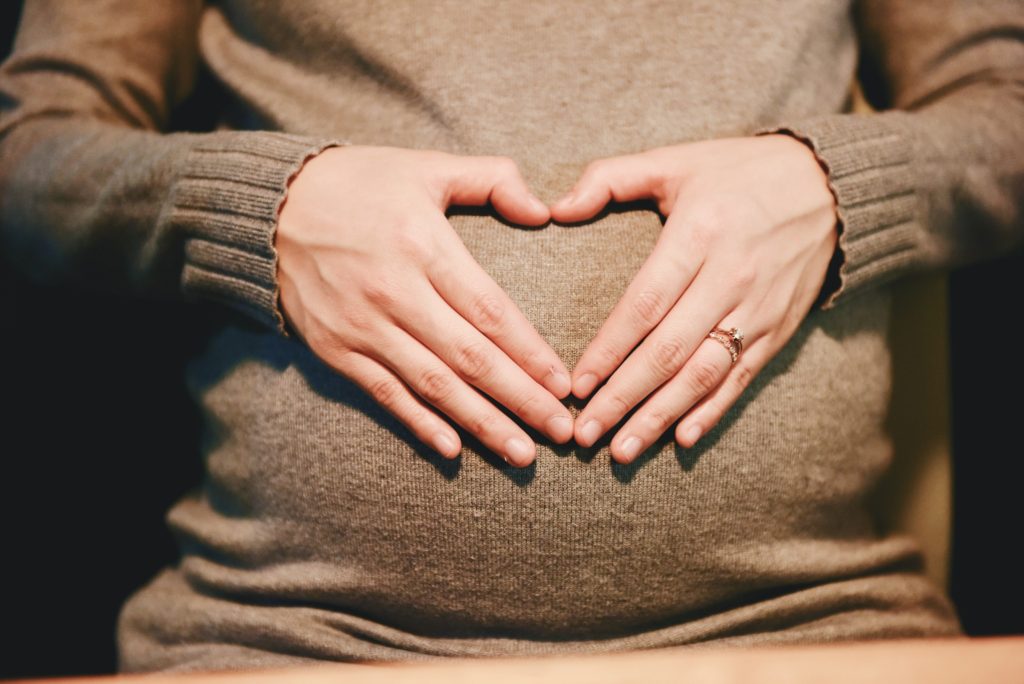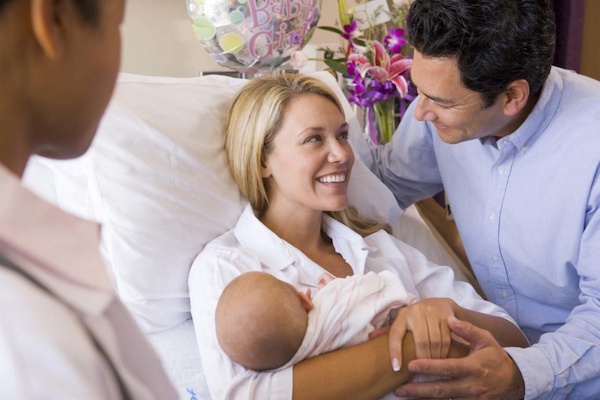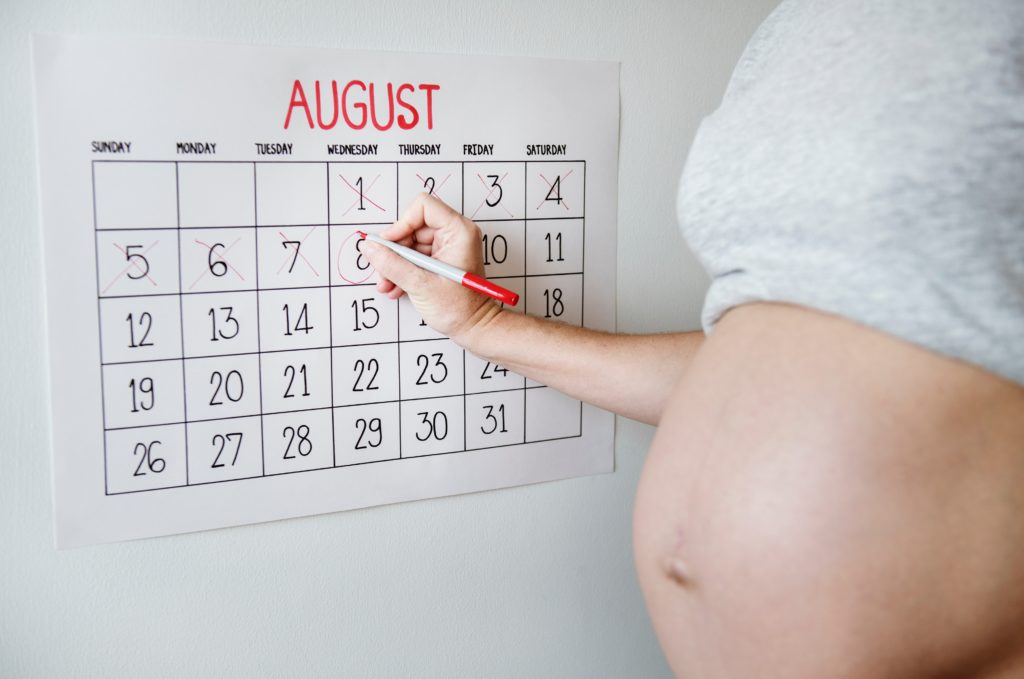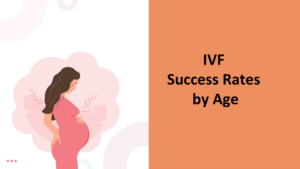Can you become pregnant after menopause? – Yes, it is possible with medical intervention.


In modern days, it is a couple’s decision when to have a child. Most of them prefer a child in the later stages of their life due to personal or professional reasons. But they should know the fact that having children later in life can be full of risks and complications. One more thing, you won’t be able to get pregnant after a female partner reached her menopause.
So, what exactly is menopause, and how pregnancy is related to it? Can you become pregnant after menopause? To know the answer to all of them, just scroll down!
Menopause is a natural phase in a woman’s life, marking the end of reproductive years. Many women wonder if it’s possible to become pregnant after menopause. In this blog post, we delve into this topic, examining the science behind fertility during and after menopause, the risks involved, and the options available for those who desire pregnancy during this phase of life.
Get in touch for FREE SURROGACY CONSULTING:
Mobile: +91-8800481100 ( WhatsApp, Line, Viber)
Email: neelam@ivfconceptions.com
Key Takeaways for Becoming Pregnant After Menopause:
- Menopause is a natural phase that marks the end of the reproductive years (45-55).
- Stages of Menopause: Perimenopause, menopause, and postmenopause. Menopause is diagnosed after 12 months without a period.
- Pregnancy after menopause is rare. Residual eggs or fertility treatments (e.g., IVF) may enable conception. Risks increase post-menopause.
- Risks: Higher risks for mother and baby. Complications include gestational diabetes, hypertension, preterm birth, and genetic disorders.
- Options: Assisted reproductive technologies offer egg donation, hormone therapy, surrogacy, and adoption.
- Consultation: Seek guidance from infertility specialists for personalized advice and options.

 Understanding Menopause and Fertility
Understanding Menopause and Fertility
Menopause is a transitional period that occurs when a woman’s ovaries cease to release eggs, resulting in the end of menstrual cycles. Fertility declines as women approach menopause, mainly due to the decrease in the number of viable eggs in the ovaries. However, menopause is not an abrupt event but a gradual process, and it is still possible to conceive before menopause is fully established.
What is menopause?
Menopause is 12 months after the last period of a woman. The years before that are called the menopause transition or perimenopause when women can feel the change in their monthly cycles or their hot flashes or other symptoms.
The transition to menopause begins most often between 45 and 55 years of age. It usually takes approximately 7 years but can be 14 years. Estrogen and progesterone, two ovarian hormones, are very different in bodily production during the menopausal transition.
Stages of menopause
The process of menopause starts when you observe the first symptoms. Although the process does not occur in just one stage. It has three different stages – perimenopause, menopause, and post-menopause.
#1. Perimenopause: The Transition Phase
Perimenopause may start 8 or 10 years prior to menopause as ovaries produce fewer estrogens gradually. It usually begins in the 40s in women, but it can also begin in the 30s. Perimenopause lasts until menopause when the ovaries do not release eggs. The drop in estrogen accelerates in the last one to two years of perimenopause. Many women may have symptoms of menopause at this stage. During this time, women continue to have menstrual cycles and can become pregnant.
#2. Menopause: The End of Fertility
The point of menopause is that a woman has no cycles of menstruation. The ovaries have stopped egg release. Menopause is diagnosed when a woman goes 12 consecutive months without a menstrual period.
#3. Postmenopause:
That is the name given to a woman’s time after a whole year after menopause. In this phase, many women can experience menopause symptoms, such as hot flashes. However, for a decade or longer after the menopause transition some women continue to experience symptoms of menopause. As a consequence, the risk of a variety of health problems such as osteoporosis and cardiac illnesses is increased for postmenopausal women. The risk of any of these disorders can be minimized by medications such as hormone therapies.
Can You Become Pregnant after Menopause?
Yes, you can get pregnant during perimenopause however, there will be a decline in the fertility of a woman during perimenopause. You should use some form of birth control before menopause if you don’t want to get pregnant.
Possibility of Pregnancy After Menopause
While the chances of getting pregnant naturally after menopause are extremely low, there have been rare cases where women have conceived. This can occur if there are residual eggs remaining in the ovaries or if fertility treatments, such as in vitro fertilization (IVF), are utilized. However, it’s important to note that the risks and complications associated with pregnancy increase significantly after menopause.
Risks of being pregnant during perimenopause
Pregnancy after menopause carries higher risks for both the mother and the baby. The decline in hormonal levels and overall changes in the body during menopause can lead to various health complications, including gestational diabetes, hypertension, and preterm birth. Additionally, the chances of chromosomal abnormalities and genetic disorders in the baby also increase with maternal age.
Statistics suggest that 4.5% of women cannot become pregnant naturally at 25 years of age. At 38 years, this figure was 20%, reaching 50% at age 41, almost 90% at age 45, and nearly 100% at age 50. These estimates were based on data from over 58,000 people.
For both mother and baby, there are several possible hazards. Miscarriage is increased among older mothers as eggs, variable hormones, and uterine changes are lower in quality. Low egg quality also raises the risk of birth disorders such as Down syndrome, triggered by cell division errors that create a chromosome extra.
The risk to the baby born to elderly women includes early infancy, which is associated with a host of complications, from cerebral to developmental.
Pregnancy time is even tougher for older women, who experience complications including blood pressure, strokes, gestational diabetes, and heart problems, more than their younger counterparts
Getting pregnant after Menopause using IVF
Assisted reproductive technologies offer options for women who desire to become pregnant after menopause. In vitro fertilization (IVF) is one such technique where mature eggs are retrieved from the ovaries and fertilized with sperm in a laboratory setting. The resulting embryos are then transferred to the woman’s uterus.
If you delay your pregnancy to your job or higher training or want to expand your family with a new partner, postmenopausal pregnancy with frozen eggs and with young egg donors is very much possible.
According to a recent survey, over 40% of women in the U.S. agree that postmenopausal pregnancy is an increasingly desirable activity for women who are in a job before the age of 40, with an increase in IVF of 2% between 2013 and 2014 for women over the age of 50.
According to the advocacy group March of Dimes, the chances of having Down syndrome increase with age as below:
- Age 25 years: 1 in 1,340.
- Age 30 years: 1 in 940.
- Age 35 years: 1 in 353.
- Age 40 years: 1 in 85.
- Age 45 years: 1 in 35.
Options for Pregnancy After Menopause:
- Egg donation: Using donated eggs from a younger, fertile woman through IVF can increase the chances of pregnancy for women in menopause.
- Hormone therapy: Certain hormone replacement therapies (HRT) may help improve fertility and support pregnancy in menopausal women.
- Surrogacy: If carrying a pregnancy is not medically advisable, using a surrogate can be an option to fulfill the desire for parenthood.
- Adoption: Adoption provides an alternative path to becoming a parent for those who are unable to conceive naturally or through assisted reproductive techniques.
More resources on pregnancy and fertility:
All about IVF with egg donation
How to improve the chances of getting pregnant?
How to prepare your body to carry the child after menopause?
There is a uterine rejuvenation process for the woman who has already experienced menopause to prepare their womb for the embryo. Although the uterus atrophys after menopause significantly, the womb can return to health after estrogen and progesterone therapy.
In this instance, hormonal stimulation is more important than ever since the uterus may shrink to one-third of its normal size after menopause. In certain women, the endometrial lining is also diluted, requiring a longer period of hormonal treatment before IVF to restore the endometrial lining to an appropriate size and thickness for a healthy pregnancy.
Can menopause be reversed?
Right now, there is no such scope for the reversal of menopause but researchers are trying their best. One avenue of study is treatment using a woman’s own platelet-rich plasma (PRP). PRP contains hormones cytokines and growth factors. This therapy suggests that menopausal reversal is possible but only temporarily.
11 out of 27 women who had PRP treatment, regained a menstrual cycle in three months in a small study of postmenopausal females. Researchers have managed to obtain two women’s mature eggs. In one woman, IVF succeeded.

 Conclusion
Conclusion
In conclusion, natural pregnancy is not possible after menopause as the ovaries no longer release eggs. Menopause signifies the end of fertility due to hormonal changes in the body.
However, during the transitional phase of perimenopause, it is still possible to conceive naturally, although the chances decrease significantly.
In postmenopause, assisted reproductive technologies like in vitro fertilization (IVF) and hormone replacement therapy (HRT) offer alternatives for women who desire to become pregnant. It’s important to consult with a healthcare professional for personalized advice and guidance.
While it’s rare to become pregnant after menopause without medical intervention, science and advancements in assisted reproductive technologies offer possibilities for women who desire to have children during or after this life stage.
However, it’s crucial to consider the risks, consult with medical professionals, and explore all available options to make informed decisions that prioritize both maternal and child health.
If you still want to get pregnant during and after menopause, talk to a specialist who specializes in infertility of postmenopausal women.
More resources on becoming parents via surrogacy :
Cheapest countries for surrogacy
Best international surrogacy countries.
If you’d like to learn more about IVF, Egg Donation, or surrogacy services globally, check out the rest of our website: IVF Conceptions. We offer legally secure and affordable surrogacy consulting services for FREE.
Get in touch for FREE SURROGACY CONSULTING:
Mobile: +91-8800481100 ( WhatsApp, Line, Viber)
Email: neelam@ivfconceptions.com
FAQ for Becoming Pregnant after Menopause
Yes, it is still possible to conceive naturally during perimenopause, although the chances decrease as fertility declines.
No, natural pregnancy is highly unlikely after menopause as the ovaries no longer release eggs.
– Assisted reproductive technologies (ART) such as in vitro fertilization (IVF) and hormone replacement therapy (HRT) provide options for conceiving after menopause.
Yes, the chances of successful pregnancy decrease with maternal age, especially after menopause.
Resources:
https://healthnews.com/womens-health/menopause/can-you-get-pregnant-after-menopause/
https://www.healthline.com/health/menopause/menopause-pregnancy


